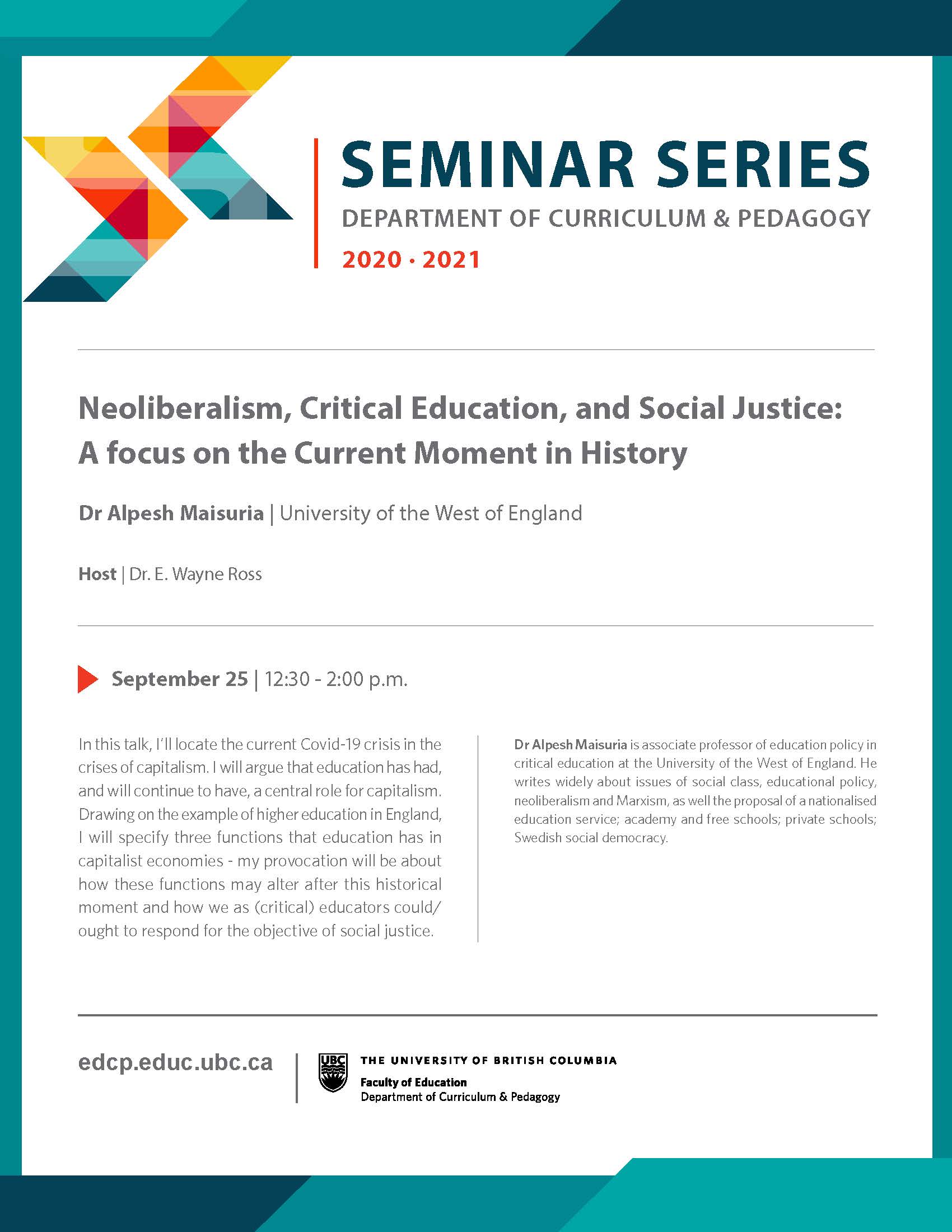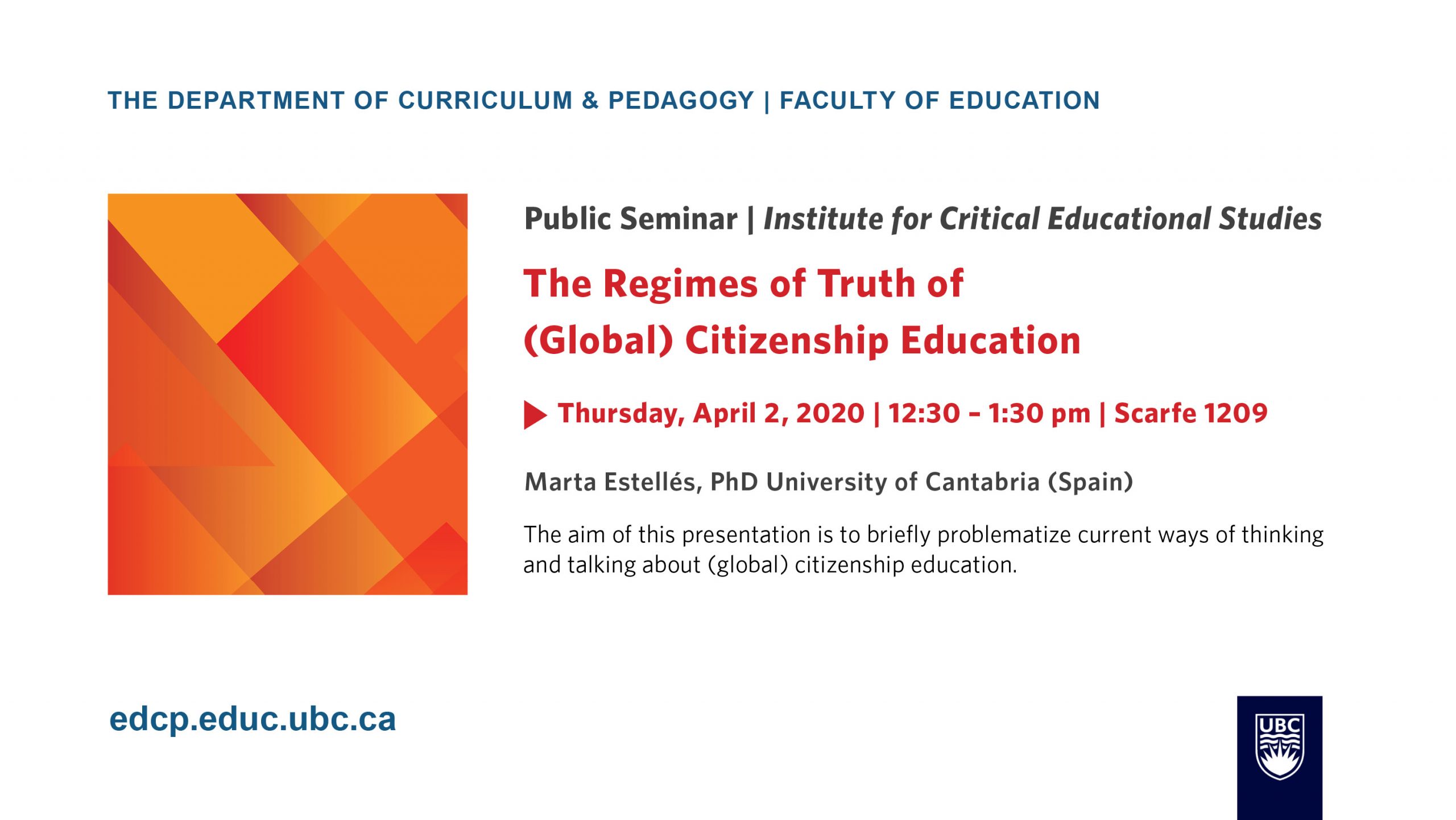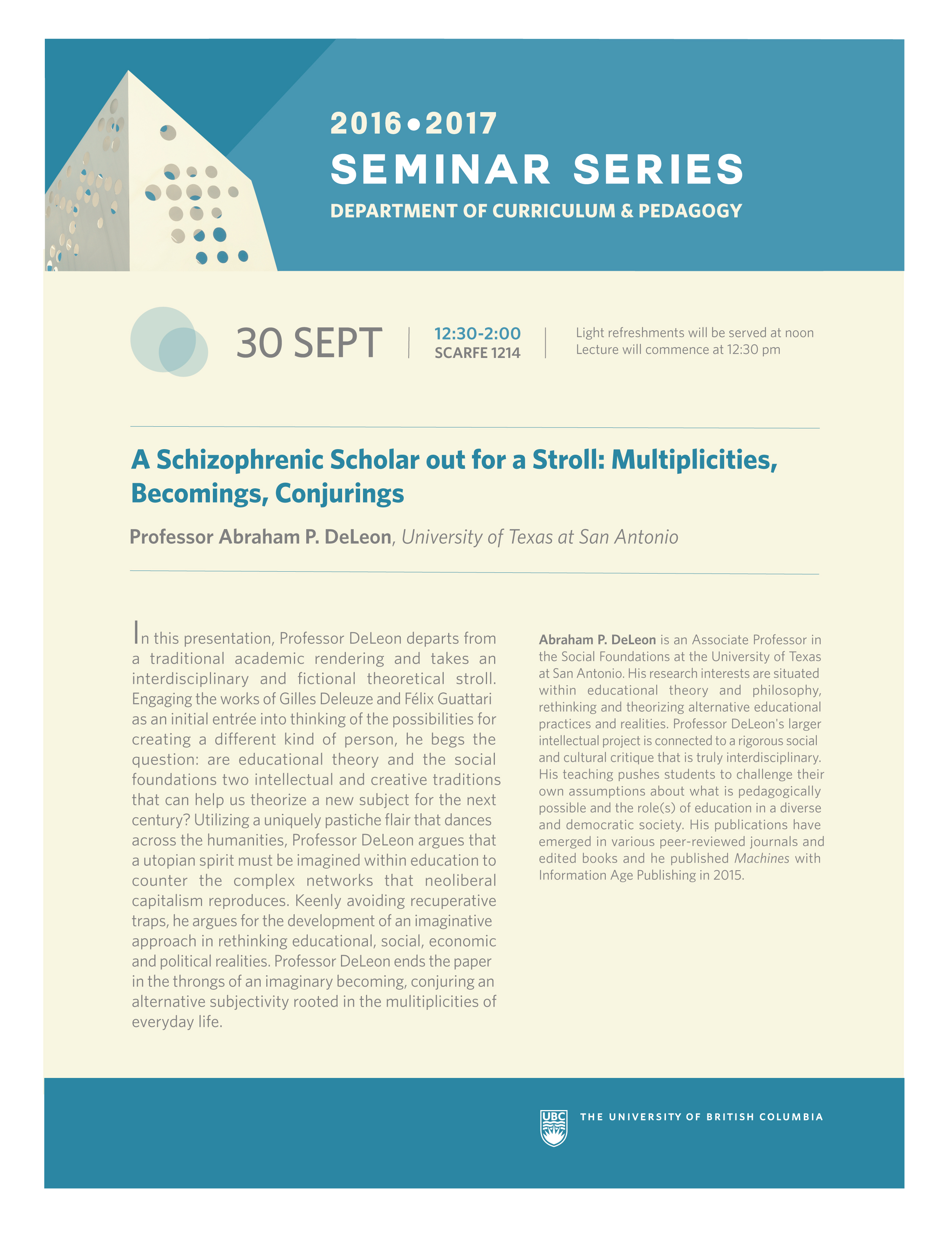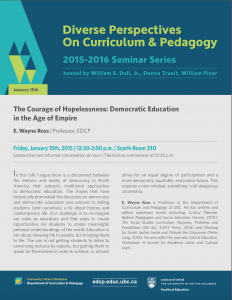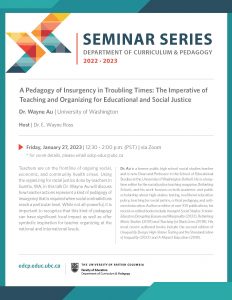
Mark your calendar for UBC Department of Curriculum and Pedagogy Seminar with Dr. Wayne Au (University of Washington, Bothell).
Dr. Au will be speaking on “A Pedagogy of Insurgency in Troubling Times” on January 27, 2023, 12:30PM – 2:00PM via Zoom.
For Zoom details, please email edcp.educ@ubc.ca
Dr. Au’s seminar talk is titled “A Pedagogy of Insurgency in Troubling Times: The Imperative of Teaching and Organizing for Educational and Social Justice”. Teachers are on the frontline of ongoing social, economic, and community health crises. Using the organizing for racial justice done by teachers in Seattle, WA, in this talk Dr. Wayne Au will discuss how teacher actions represent a kind of pedagogy of insurgency that is required when social contradictions reach a particular level. While not all-powerful, it is important to recognize that this kind of pedagogy can have significant local impact as well as offer symbolic inspiration for teacher organizing at the national and international levels.
Dr. Au is a former public high school social studies teacher and is now Dean and Professor in the School of Educational Studies at the University of Washington Bothell. He is a long-time editor for the social justice teaching magazine, Rethinking Schools, and his work focuses on both academic and public scholarship about high-stakes testing, neoliberal education policy, teaching for social justice, critical pedagogy, and anti-racist education.
Author or editor of over 100 publications, his recent co-edited books include Insurgent Social Studies: Scholar-Educators Disrupting Erasure and Marginality (2022), Rethinking Ethnic Studies (2019) and Teaching for Black Lives (2018). His most recent authored books include the second edition of Unequal By Design: High-Stakes Testing and the Standardization of Inequality (2022) and A Marxist Education (2018).
Dr. Au was honored with the UWB Distinguished Teaching Award in 2015, presented the William H. Watkins award for scholar activism from the Society of Professors of Education in 2017, and recognized with the Distinguished K-12 Educational Leader Award from the Evergreen State College MiT program in 2019.
